
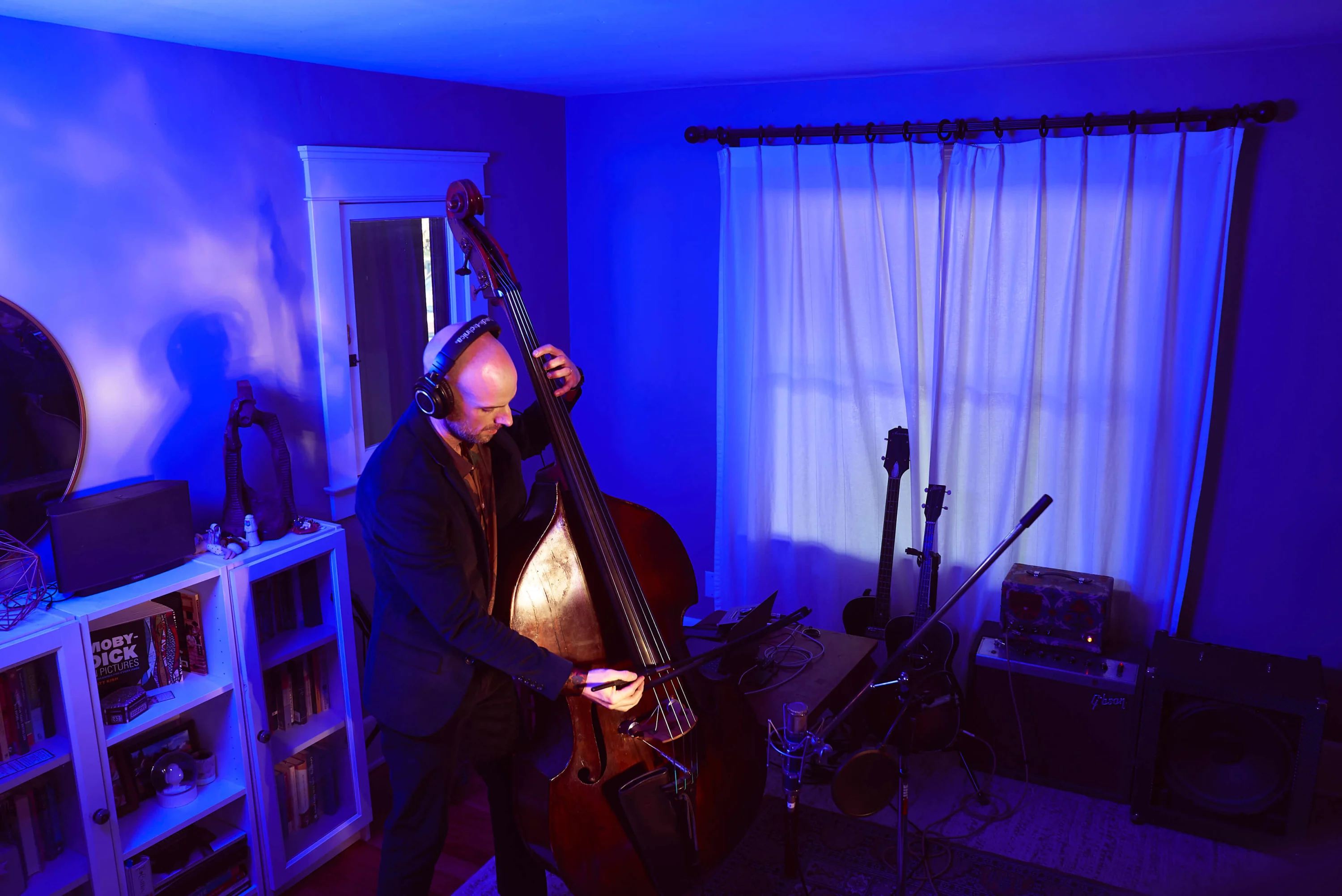

Session bassist, singer-songwriter, commercial composer — as a modern working musician, Alan Hampton juggles it all. Writer Andy Hermann sits down with Alan at his home in Los Angeles to discuss the flexibility he has found as an artist, how PremiumBeat enables his work and the challenges posed by the changing face of the music industry today.
Photography by Dyan Jong. Styling by Sandy Phan.

Alan Hampton didn’t set out to be a bass player. The drums were his first instrument. But as a teenager in Houston, applying to an intensely competitive performing arts high school, he made a canny, pragmatic decision.
“This particular school was just decked out with these incredible drummers — and I wasn’t that good,” the musician says with a laugh. “I knew they needed bass players and I didn’t really care what the instrument was. I wanted to study jazz and I thought that bass was my best shot.”
He also wanted to study composition. “Writing music has always been my safe place. When I was learning jazz and didn’t know the language yet, I could go home and write music. That was my way of processing the fundamentals of jazz. I could do it on my own terms and incorporate it into my own language. So I’ve always written songs.”
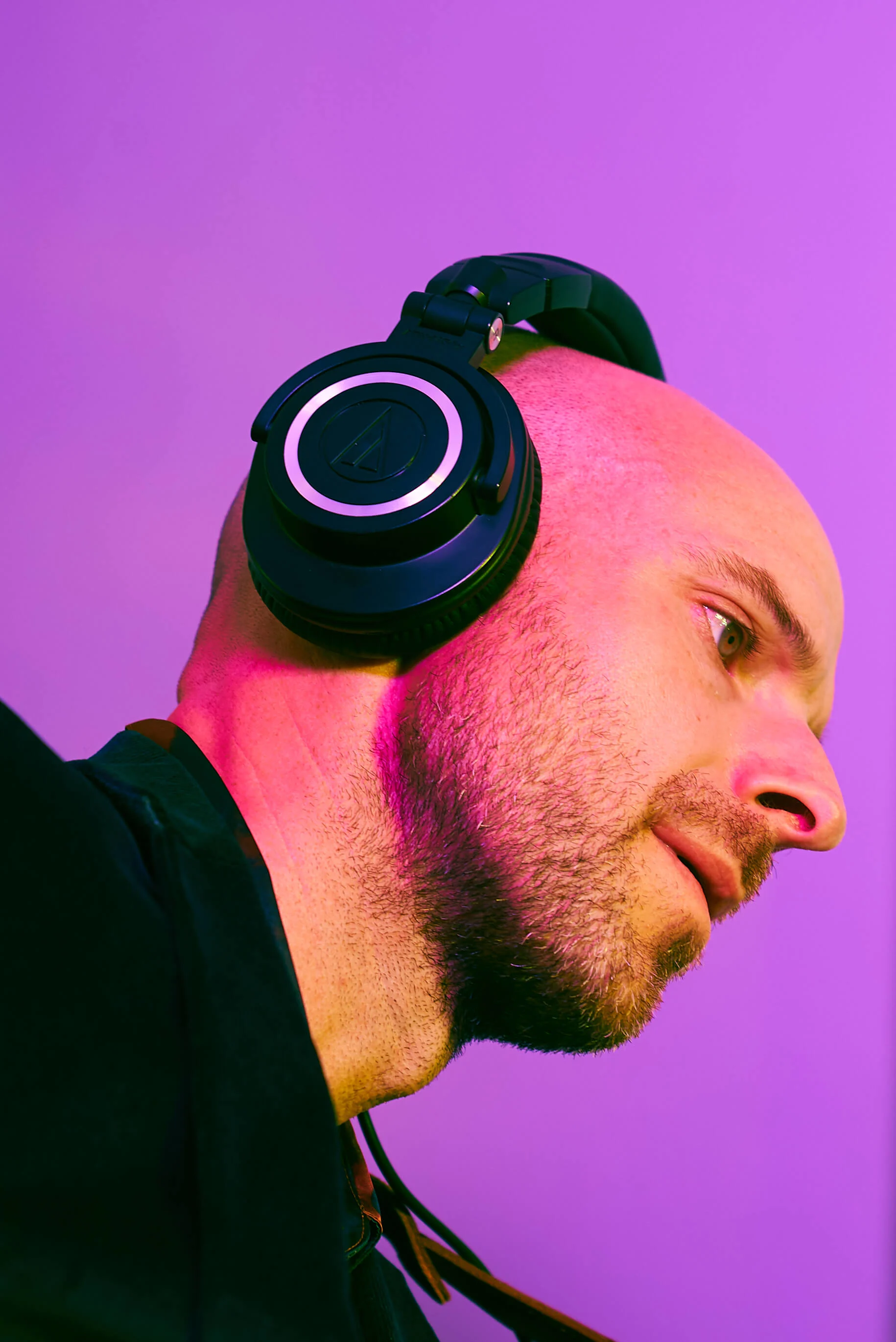
Now, at 38, Hampton combines all his youthful interests — bass, jazz and songwriting — into a multifaceted career as a solo artist, commercial composer, and touring and studio musician. Along the way, he’s worked with artists as varied as Andrew Bird, Sara Bareilles, Meshell Ndegeocello, Chris Thile and even the reggae-rock band 311.
A graduate of the prestigious Thelonious Monk Institute of Jazz, Hampton got his start in New York City, where he “slugged it out — nine gigs a week,” playing with rock bands, jazz combos and everything in between. His first big break came when jazz pianist Robert Glasper — a Houston native who had been following Hampton since his high school days — recruited the young bassist to be part of his touring trio with drummer Chris Dave.
“Chris and Robert were the guys that taught me how to tour. That taught me, like, ‘Don’t look at the music if you don’t have to. We’re not reading music — why are you?” Hampton says. “They just had all kinds of experience and stories, and they trained me.”

I normally start building the track with whatever instruments I’m traveling with.
From there, Hampton’s resume grew quickly. Soon he was a regular member of jazz singer Gretchen Parlato’s band, and also booking shows and studio time with artists like Sufjan Stevens, the New Pornographers, and Clare & the Reasons. With Parlato, and later the Reasons, he also unlocked another skill — singing backup vocals, in a plaintive, elastic tenor well-suited to high harmony parts.
“To this day, most of my gigs now are as a singing bass player,” Hampton says. He credits Parlato and Reasons frontwoman Clare Manchon as vocal mentors, but also notes that his musical training helped. “Absolutely the jazz informs my background singing.”
It informs his lead vocals, too. In 2011, Hampton self-released his first solo album, The Moving Sidewalk. He recorded the set’s 10 tracks of twinkling, jazz-tinged folk-rock over a period of two years, self-financing the whole endeavor with income from his many touring gigs. “It took me a couple years to make it because I had to make the money to hire string players whatever. Then I’d run out of money and I’d have to go back on the road for awhile.”
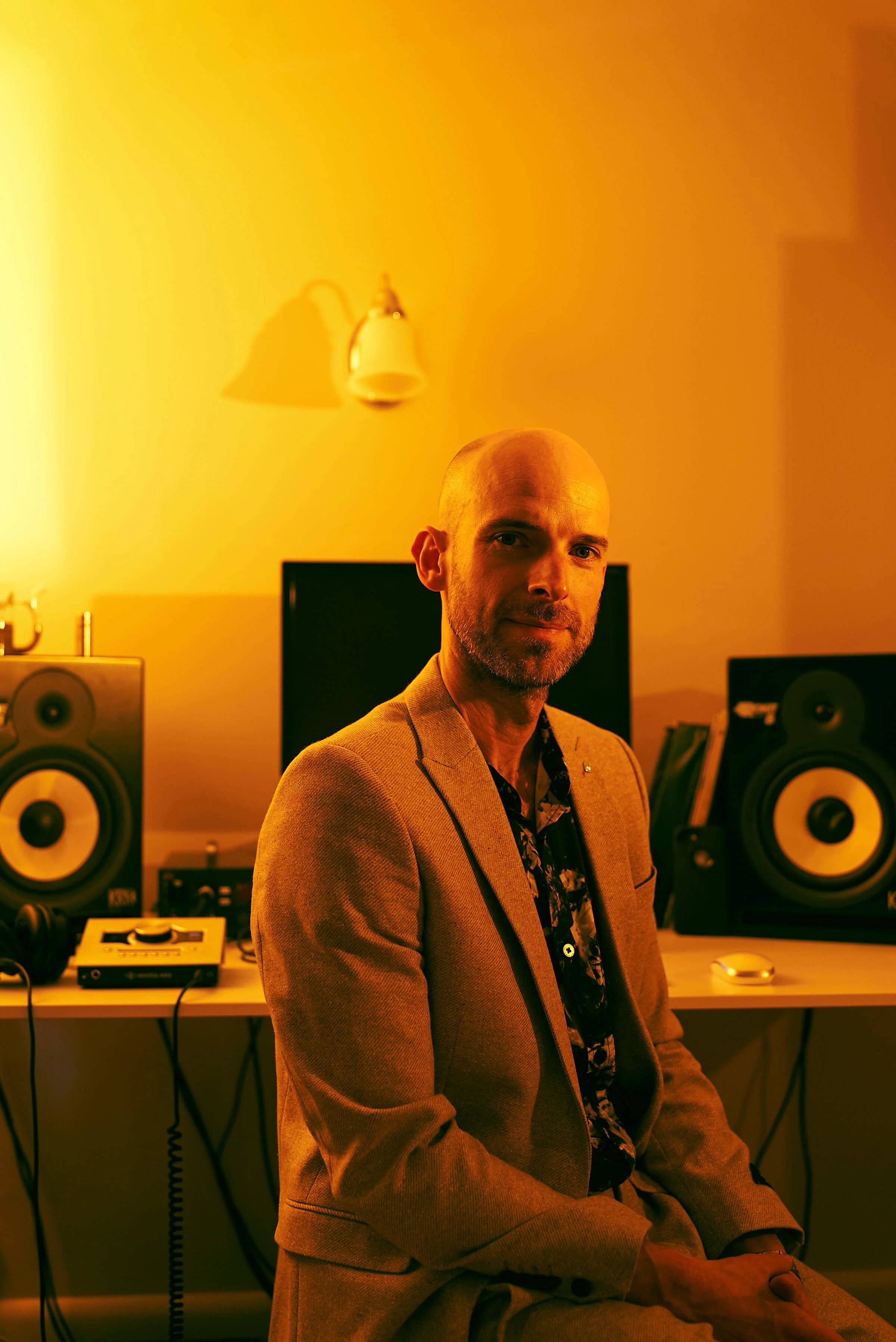
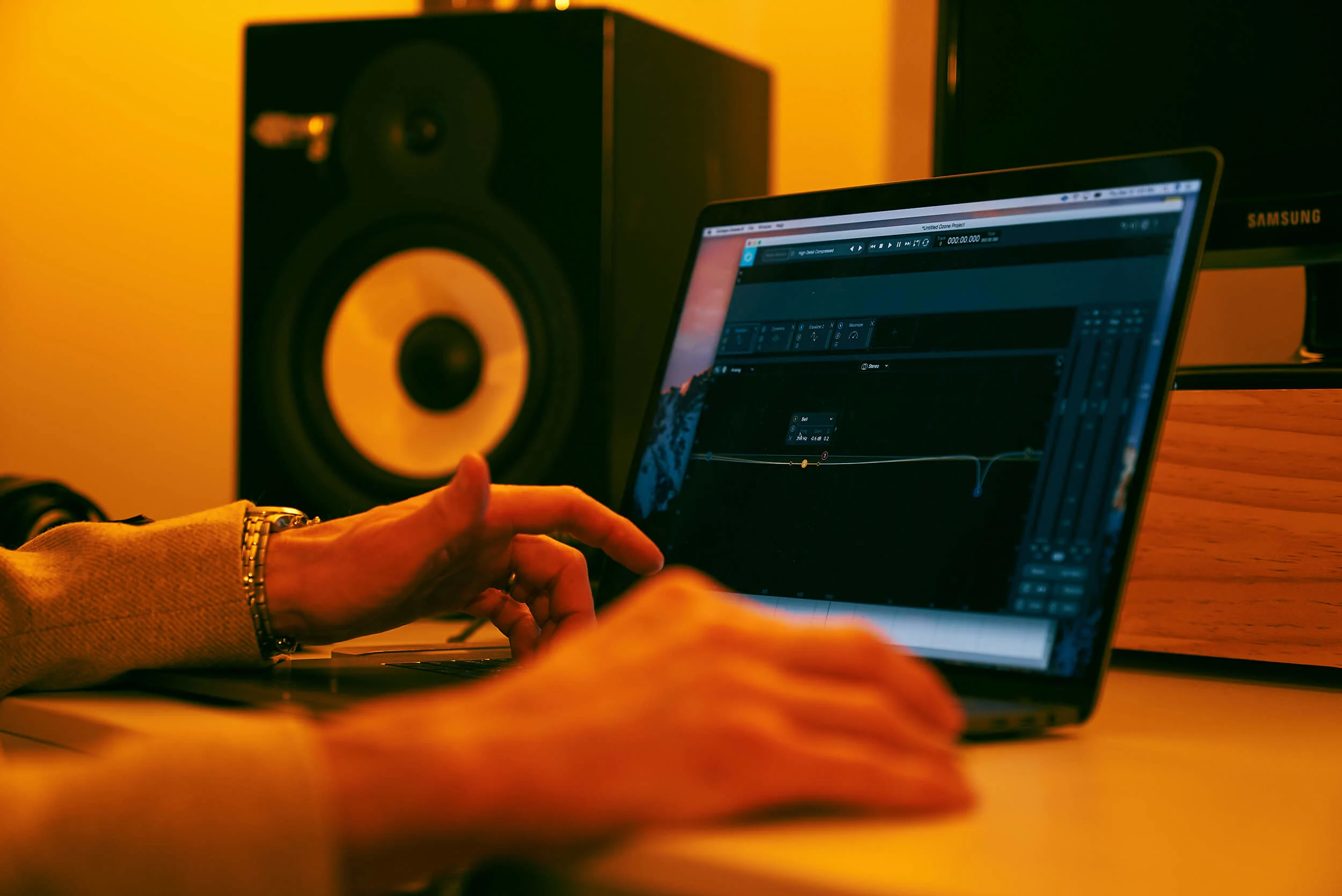
Though Hampton’s songs are often as catchy as anything on the radio, he has little interest in pursuing solo fame and fortune. “I wasn’t looking at making my solo record as a career move at all,” he explains modestly. “It was just something I had to do. I had been writing all these songs — and I had all these opinions when I would go and work on someone else’s record. And I thought, ‘Man, I need to make a record and put my opinions there.’”
Since then, he’s released a second solo album, Origami for the Fire, and has a third in the works. “I’ve got either two songs or eight songs that are pretty close to being finished. It all depends on what comes together in some sessions that I’ll be having next month. But I’m really excited about it.”
Today Hampton is a married father of two, now based in Los Angeles, where he continues to juggle his solo work and sideman career. And he’s added another endeavor to his list of accomplishments: composing and producing tracks for PremiumBeat, a royalty-free music licensing service. Since joining the platform in 2016, Hampton has written about 70 pieces under the names Doo Dah Music and Baby Powder (“a nickname a friend had for me a long time ago”) in a wide variety of styles, from folk to pop to reggae to surf-rock.
Always look for opportunities to collaborate.
Hampton describes his PremiumBeat income as “supplemental,” saying it’s less about how much money he earns from the service than the flexibility it provides. “It has empowered me to be more selective on what sideman gigs I do,” he explains. In the past, “in some situations I would have to take a tour that I would rather not take. I’m able to create that balance for myself.”
It’s no secret that even for musicians of Hampton’s caliber, the traditional industry paths of touring and studio work have become a tougher way to make ends meet. But thanks to a growing ecosystem of professional online music services, many artists and musicians are finding creative new ways to supplement their income through their art. In addition to royalty-free commercial music providers like PremiumBeat, there are now sites through which musicians can market their studio and production skills, lease backing tracks to rappers and pop singers, and even auction off portions of their publishing.
In the case of PremiumBeat, for Hampton, it’s given him a way to immediately monetize his first plunge into home recording. Before becoming a composer for the service, “I hadn’t done a whole lot of commercial writing and home production,” Hampton says. “I actually cut my teeth on home studio production with this company. I had to force myself to get it together very quickly because I thought it was a great opportunity.”
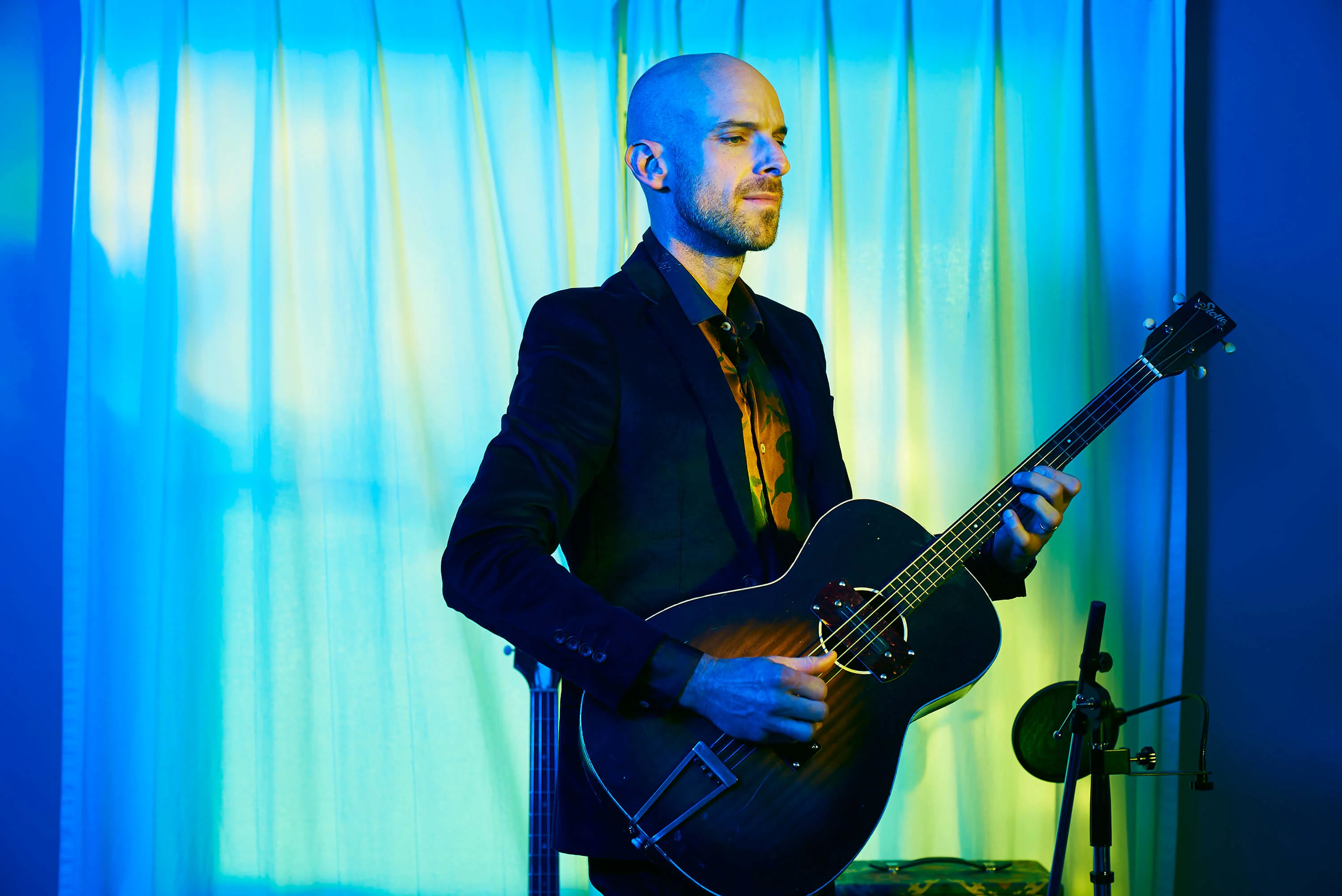

The portable recording rig Hampton uses for his PremiumBeat work consists of a MacBook Pro outfitted with UAD and Izotope plug-ins, an Apollo Twin interface, and a Shure 58 microphone. “I sometimes set up in the hotel or backstage and write. I usually start by writing a tune: just melody, chords, and a form. This often happens with a guitar in hand, singing a melody. Once I have that, I start building the track with whatever instruments I'm traveling with.” (When he can, Hampton records at home, in a small bedroom studio or the spacious front room of his home in suburban Pasadena. But with two small children, that’s not always possible.)
For anyone looking to get into commercial composing, Hampton advises, “Pick a reference track, and really study it. Try to match the drums and the other sounds. Listen to how the melodic parts fit together compositionally and sonically.” Thanks to his own application of that advice, Hampton’s work for PremiumBeat has ranged far beyond the jazz, pop and folk-rock for which he’s best-known. “I’ve done some string quartets. I’ve done some exotica. It’s kind of been all over the map. In some ways, it’s like getting paid to practice and learn and study.”
A versatile multi-instrumentalist, Hampton can play virtually all the parts himself — except, ironically, his first instrument: drums. “I’m not able to sit down and play a drumbeat for two minutes that anyone would ever want to dance or listen to,” he admits. Instead, he stitches drum parts together digitally. “And a lot of times I’ve also hired drummers.”
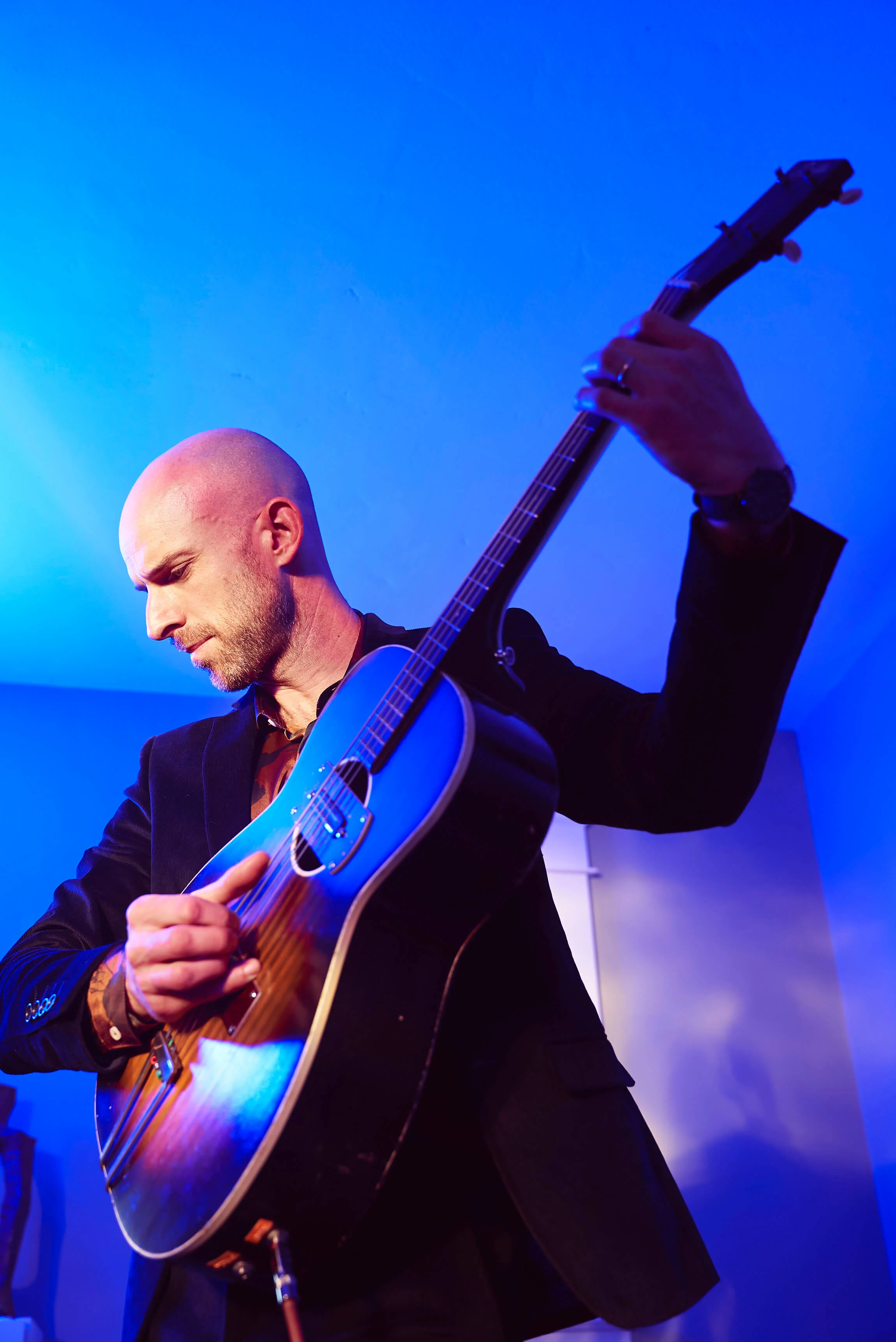
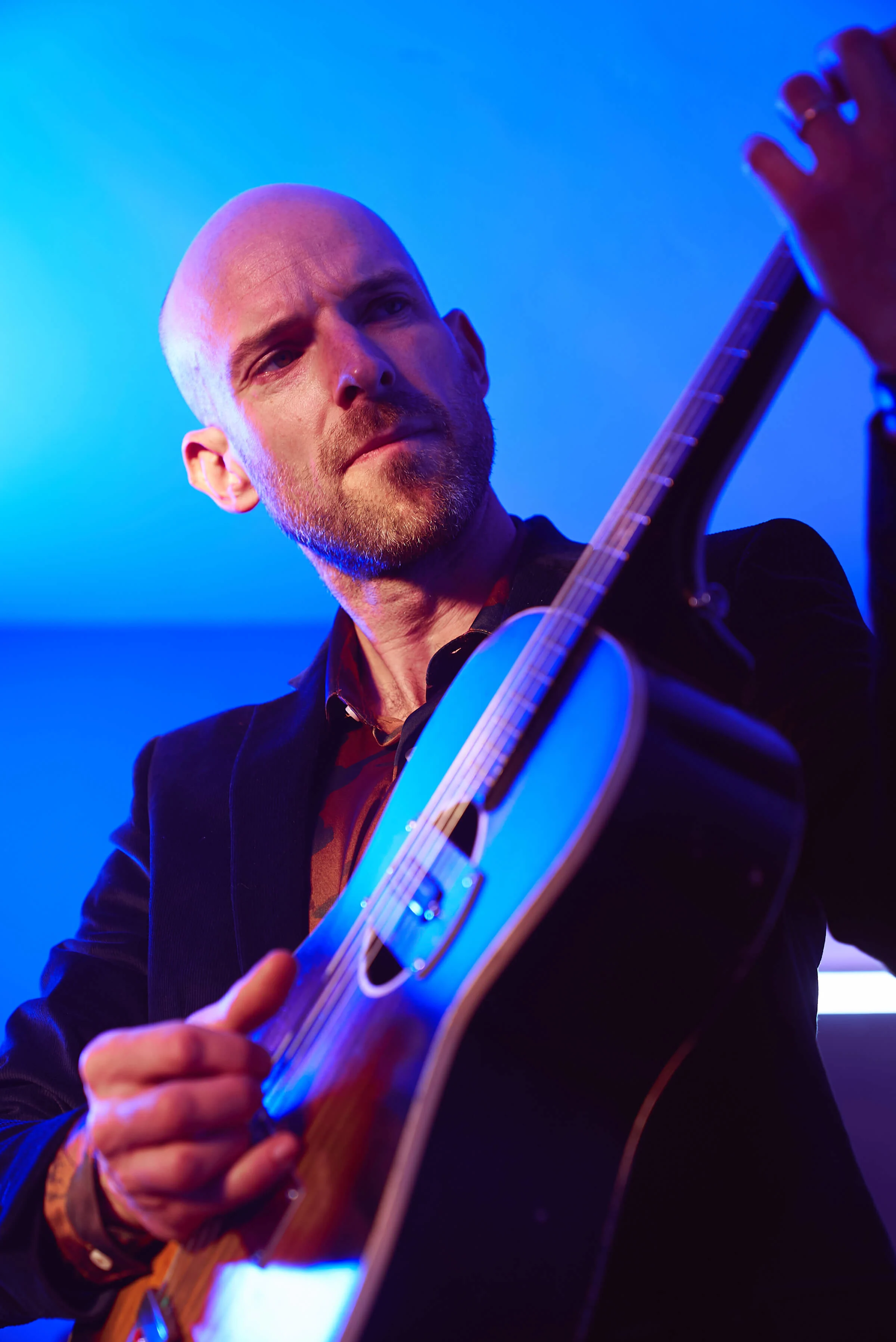
Hampton’s collaborative work on PremiumBeat has extended beyond hiring outsider musicians into working with other composers. “Look for opportunities to collaborate,” he advises. “Producing music by yourself is a great way to put your self sufficiency to the test, and can sometimes be more lucrative. But I've found that when working with other people, I learn about production, workflow, process, and I often work much faster because the ideas are bouncing back and forth.”
Outside of his PremiumBeat and solo work, Hampton’s favorite gigs these days include playing bass with singer-songwriter-violinist Andrew Bird and jamming with Chris Thile as a sometime member of the house band on Thile’s hit public radio show, Live From Here. “What an energetic, positive person he is,” Hampton says of the mandolin virtuoso. “There’s just so much music coming out of him with this velocity. It’s infinite. I think about him all the time, actually. He’s left an impression on me. That’s something to strive for.”
In his own work, Hampton strives for that kind of energy and positivity through his own guiding principle: No matter what the project, always lead with your best idea.
“I don’t want to say, ‘That’s a good idea — I’m gonna save that for my project.’ Practice your best all the time. And trust that when you unload your best idea, there’s another one around the corner.”
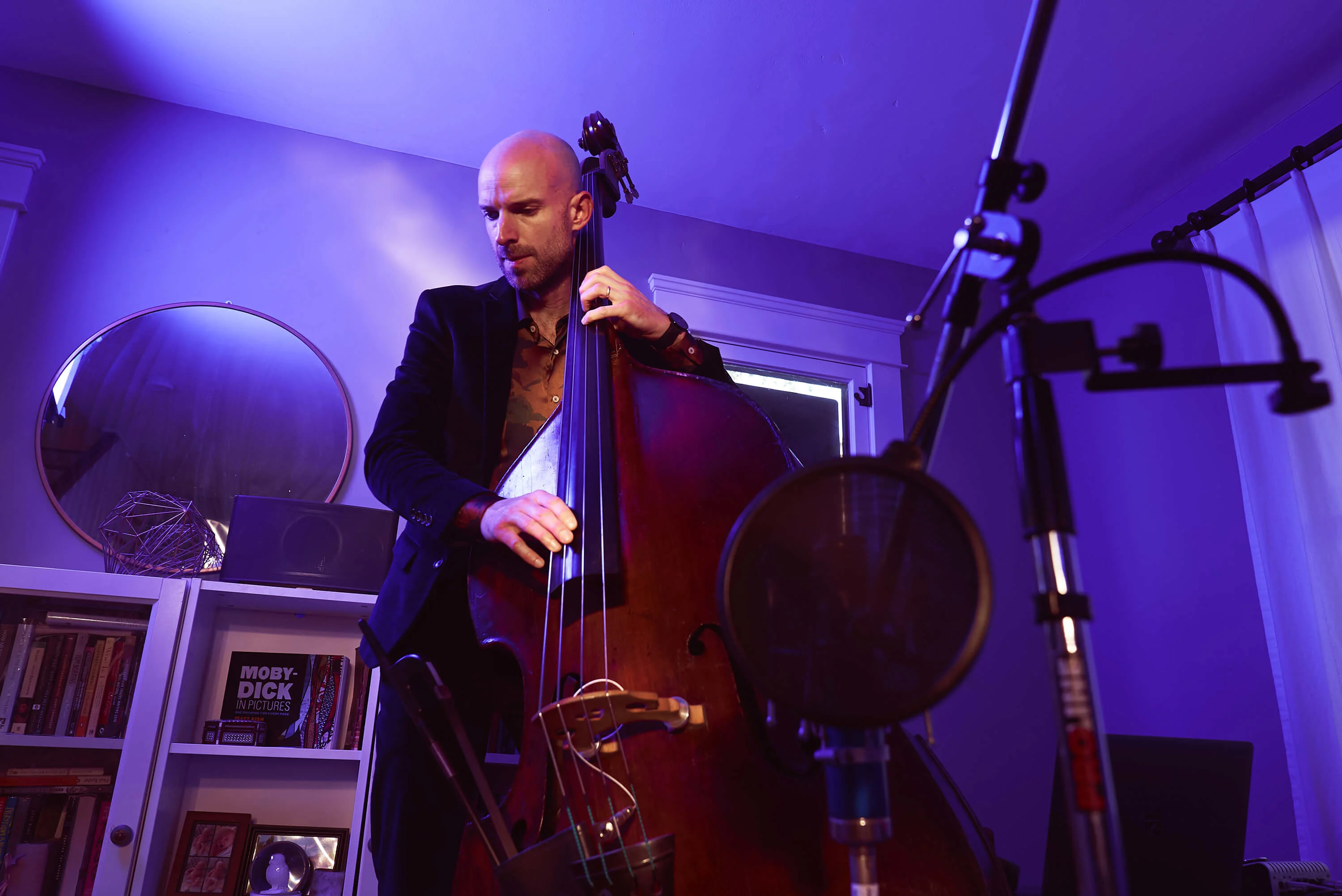
WePresent and Shutterstock have partnered to support creatives by highlighting the dynamic offering from PremiumBeat, a Shutterstock service dedicated to sourcing and licensing music for media. The flexibility of PremiumBeat enables musicians from all around the world to stay creative while also earning a living from their craft.

